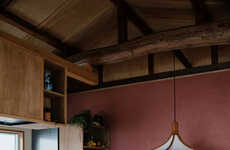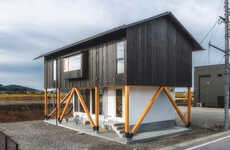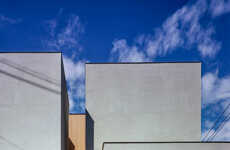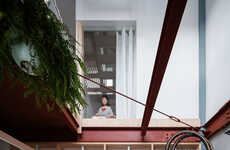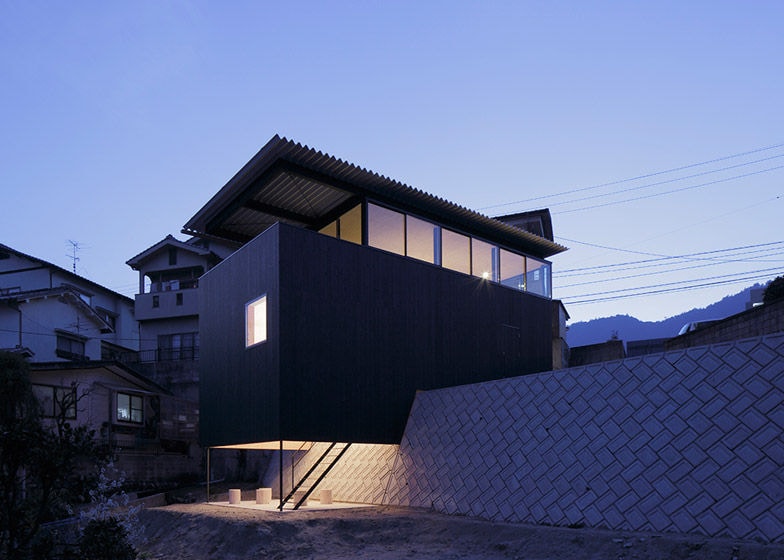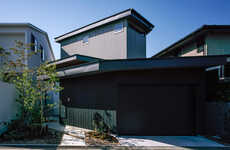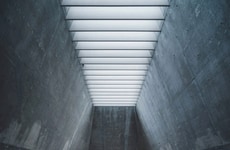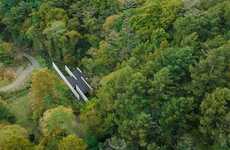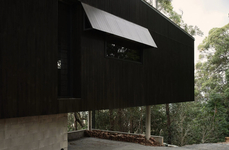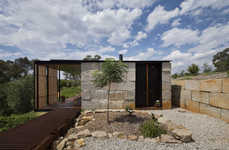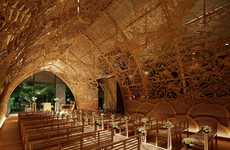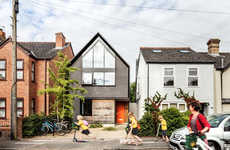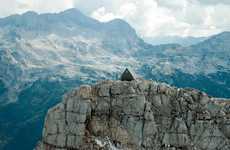
The House in Miyake Features a Unique Arrangement
Vasiliki Marapas — November 7, 2014 — Art & Design
References: yoshio-oono & dezeen
Yoshio Ohno Architects designed the 'House in Miyake,' a compact residence made from blackened timber and built on top of a concrete wall in Hiroshima, Japan.
The Japanese studio had only 93-square-meters to work with. They chose to construct across a split-level site, divided by the four-meter retaining wall the home rests upon. By having the structure straddle the wall, the architects were able to build as though it were a single site.
Two black columns support the three storeys of the building; one which is secluded by the escapement, leaving the other two visible above the retainer. The home is accessed by two different doors, once of which is concealed in the black exterior of the timber facade and leads directly onto the first floor.
The Japanese studio had only 93-square-meters to work with. They chose to construct across a split-level site, divided by the four-meter retaining wall the home rests upon. By having the structure straddle the wall, the architects were able to build as though it were a single site.
Two black columns support the three storeys of the building; one which is secluded by the escapement, leaving the other two visible above the retainer. The home is accessed by two different doors, once of which is concealed in the black exterior of the timber facade and leads directly onto the first floor.
Trend Themes
1. Compact Living - The 'House in Miyake' demonstrates the trend for small, efficient living spaces.
2. Vertical Architecture - The use of a concrete retaining wall as a foundation for the home shows the trend for vertical, space-saving architecture.
3. Natural Materials - The use of blackened timber in the construction of the home reflects the trend for eco-friendly building materials.
Industry Implications
1. Architecture - The 'House in Miyake' presents an opportunity for architects to explore innovative solutions for compact and vertical living spaces.
2. Construction - The use of natural and eco-friendly materials in construction, as seen in the 'House in Miyake', highlights the potential for disruptive innovation in the construction industry.
3. Real Estate - The trend towards compact living spaces presents a disruption for the traditional real estate industry, with a shift towards smaller, more affordable homes.
3.6
Score
Popularity
Activity
Freshness



